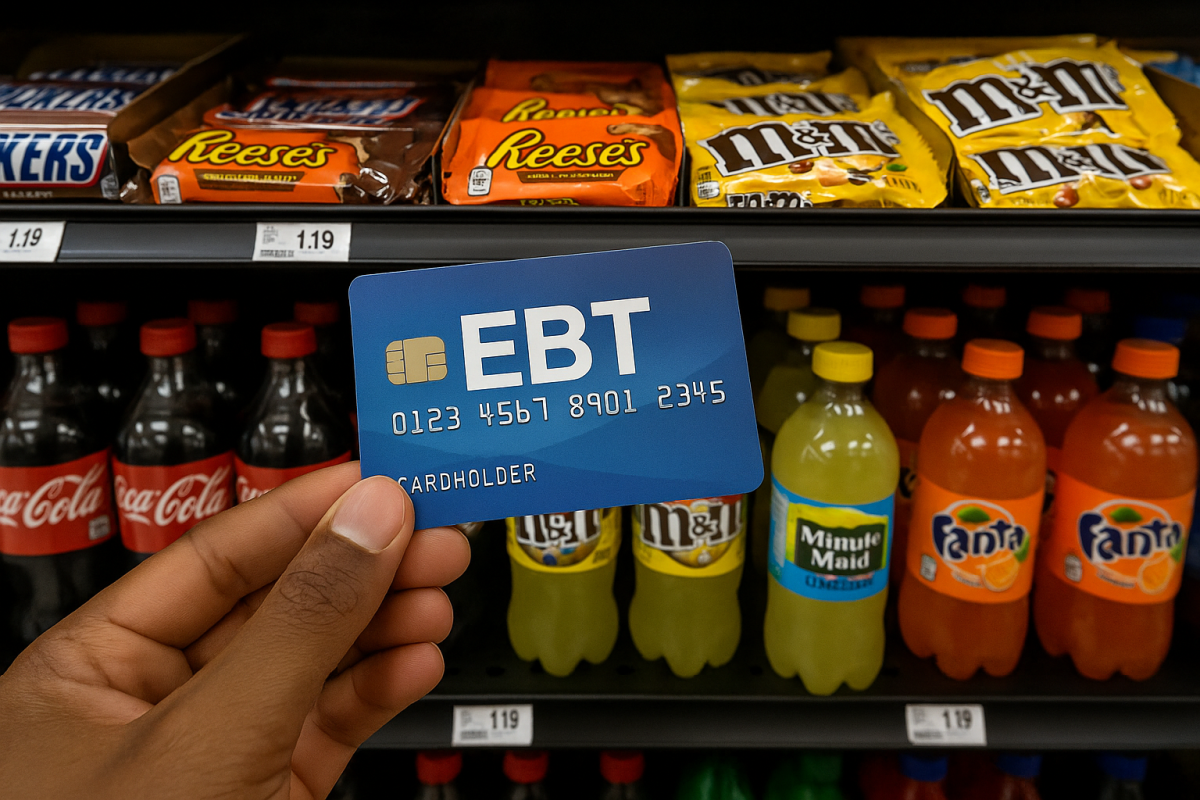South Carolinians would no longer be able to buy candy, sodas and other sugary drinks with government grocery benefits under a proposal released Thursday.
The request by Gov. Henry McMaster is part of the Trump administration’s “make America healthy again” initiative, which invited states to apply for waivers that limit how people can use their benefits through the Supplemental Nutrition Assistance Program, commonly known as food stamps. A dozen other states have already received approval on their plans.
“In this state, we try to take a common sense approach,” McMaster told reporters.
His goal in defining what can’t be bought with benefits, he said, was to allow people flexibility in what they can buy with SNAP while also restricting “things that most people will agree should be addressed and probably should not be bought with taxpayer money.”
SNAP benefits should be “used to help families purchase healthy, nutritious food,” not unhealthy, sugary junk food, he said.
“If you want to buy it with your money, you can go right ahead,” the Republican governor added. “But when it comes to the taxpayers, there are certain things that they don’t need to be paying for.”
His executive order, issued Thursday, instructs the Department of Social Services to officially submit a request for the waiver within the next two weeks. If that application is rejected, the department should continue trying until the federal government accepts the state’s plan, McMaster said.
In South Carolina, items excluded should include energy drinks, candy bars and beverages sweetened with 5 grams or more of added sugar, such as ready-made lemonade, tea and sweetened coffee, according to the executive order.
Some senators attempted unsuccessfully to add a similar, but less defined, restriction to the state budget.
The specifics of what should or shouldn’t be excluded from purchase became a point of contention among senators during floor debate. Some asked: Does honey count? What about granola bars, which often use honey to hold the other ingredients together? Or sports drinks, which contain helpful electrolytes along with sugar?
The governor’s plan specifies that granola bars could still be bought with SNAP benefits. So could juices, as long as they’re at least half natural fruit or vegetable juice with no added sweeteners. Sports drinks would also still be allowed, according to the news release.
What would not be allowed are energy drinks, defined as beverages containing at least 65 milligrams of caffeine per 8 fluid ounces that are marketed as increasing mental or physical energy.
The application will define candy as “a preparation of sugar, honey, or other natural or artificial sweeteners in combination with chocolate, fruits, nuts, or other ingredients in the form of bars, drops, or pieces.” Items specifically exempted as still OK include protein bars, cookies, crackers, muffins, pastries, and baked goods.
When Gov. Nikki Haley made a similar move to restrict what SNAP benefits could buy in 2013, senators responded by adding a clause to the state budget that would prohibit the Governor’s Mansion from stocking junk food. (Haley changed her mind about the idea after receiving pushback in public meetings across the state.)
More SC schools are offering free meals to all. A new law encourages participation.
Sen. Darrell Jackson, a Columbia Democrat, repeated his proposal this time around.
“If it’s good for the poor people of Williamsburg County, it better be good for the people who live on Richland Street in the governor’s mansion,” Jackson said during the budget debate.
Last month, about 561,000 South Carolinians — in more than 268,000 households — received SNAP benefits totaling $104.6 million, according to DSS data.
SNAP benefits have been fully paid by the federal government. But that will change in South Carolina in 2028 unless the state’s payment error rate improves.
The GOP-pushed mega-law signed by President Donald Trump on July 4 requires states to pay a portion of benefits if their error rate tops 6%. South Carolina’s error rate for the last fiscal year was 9.25%, according to data released June 30. That would require South Carolina to contribute 10% of the costs. Last fiscal year, that would’ve been $136 million.
Currently in South Carolina, SNAP can’t be used to buy alcohol, tobacco products, or food prepared and ready to eat in the store.
States to already receive permission from the Trump administration for SNAP food restrictions include Alabama, Colorado, Florida, Idaho, Indiana, Iowa, Louisiana, Nebraska, Oklahoma, Texas, Utah and West Virginia.
This is a developing story. Check back for updates.
SC Daily Gazette is part of States Newsroom, a nonprofit news network supported by grants and a coalition of donors as a 501c(3) public charity. SC Daily Gazette maintains editorial independence. Contact Editor Seanna Adcox for questions: info@scdailygazette.com.

